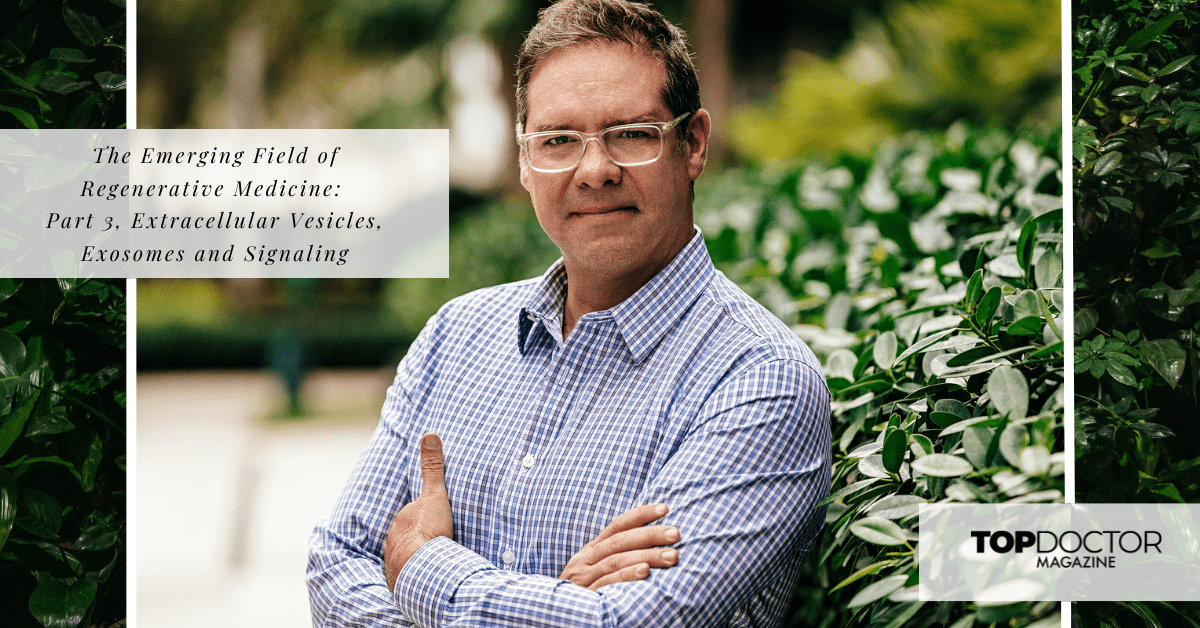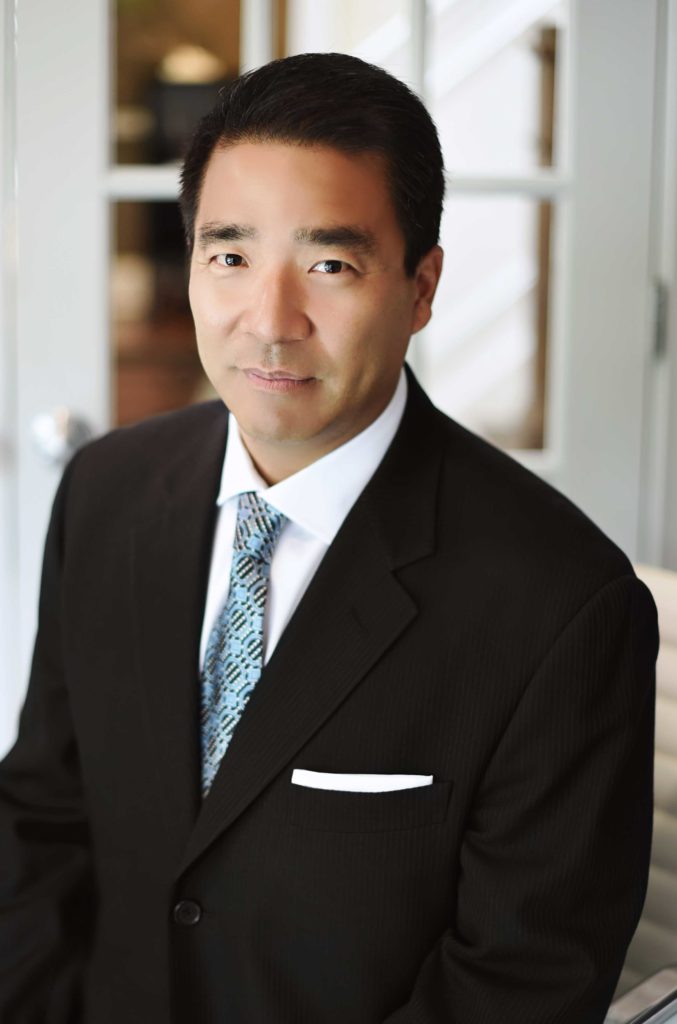Every patient is unique — their biology, genetics and biomolecular makeup — and should be treated uniquely, as each patient is likely to respond differently to specific medical treatments and therapies. This emerging reality is rapidly driving medicine from the traditional ‘one-size-fits-all’ approach toward a ‘personalized’ or precision-based viewpoint. This revolution is rapidly being adopted across the medical world, perhaps none more so than within the emerging field of regenerative medicine.
Changing the Narrative
The German physicist Max Planck said that science advances one funeral at a time. Put another way, he realized that new scientific truths do not win out by convincing opponents and making them ‘see the light,’ but rather because opponents eventually die and are succeeded by a new generation more familiar with it.
Historically, paradigm-changing scientific innovations rarely make their way by gradually winning over and converting their opponents. Prior to being awarded the Nobel prize in 1945 for the discovery of penicillin, Alexander Fleming spent over a decade and a half attempting to convince his peers of the medical potential of his discovery. By the time of the award, many of Fleming’s opponents had retired or passed away. Now we can barely imagine a world without antibiotics like penicillin.
Regenerative medicine, in conjunction with personalized medicine, is responsible for the next major paradigm shift in modern medicine. However, neither regenerative nor personalized precision medicine are subjects traditionally found in the curriculum of U.S. medical schools. As such, this emergence has been met with skepticism, doubt and confusion.
The difference between Fleming’s time and today is that patients have unlimited access to information and choice regarding healthcare. The medical industry is no longer willing to sit by for 17+ years and wait for new technologies to make it into the market. The current COVID-19 pandemic is a good example of how patients choose their own treatment based on ideas from opinion leaders, blogs and online forums. As patients navigate the web, biohacking is becoming a driving force for a paradigm shift in self-care, moving medicine towards a new age of patient-driven wellness.
Patients now recognize that understanding their biological makeup will allow them to choose the best diet, lifestyle and even medical and regenerative therapies to activate internal, ‘natural healing.’ They are more willing than ever to try innovative technologies to enhance and optimize their overall health, wellness and longevity. This biohacking revolution is not only evolving patients from passive users to proactive seekers but is also a powerful driving force moving medicine forward after decades of stagnation.
Because of the biohacking revolution, it has become critical to broadcast accurate scientific information to counteract false narratives that undermine the mainstream adoption of this medical revolution. One of the biggest issues facing this field is where to obtain reliable, scientifically accurate information. In this regard, Top Doctor Magazine has taken the initiative to provide this resource to physicians and other stakeholders to help guide the evolution of regenerative medicine and educate the future medical community. Early adopters understand the biophysical and biochemical complexity of human diseases and that current ‘boxes’ in which we’ve historically placed patient diagnoses are not rigid as once thought but fluid and personal — welcome to personalized, precision medicine.
From ‘One-Size-Fits-All’ to Personalized, Precision Medicine
Recognition that physicians need to consider individual variability has played a fundamental role in the rise of media interest in a new healthcare industry trend. Since 2015, when President Barack Obama announced a $215 million national Precision Medicine Initiative, which included, among other things, the establishment of a national database of genetic and other data from one million people in the U.S., the industry has responded. Numerous pharmaceutical and technology companies are now investing in a more precise and personalized medicine, including a common goal of improving optimal longevity that takes health span — the period of life spent in good health, free from chronic diseases and the disabilities of aging — into consideration.
Diverse terms, such as ‘personalized medicine,’ ‘precision medicine,’ ‘genetic medicine’ and ‘personalized genomics,’ have emerged to describe a range of genetics-related healthcare practices through which we define patients’ bio-individuality. Understanding bio-individuality as a myriad of factors — medical, biomolecular, genetic and environmental, etc. — helps shape a patient’s health, longevity and treatment outcomes.
From the model of bio-individuality, ‘personalized medicine’ and ‘precision medicine’ have become popular concepts in the medical community, although there is a lack of consensus on their definitions. It is widely accepted that precision medicine incorporates the concept of bio-individuality to create groups of similar people and develop a more targeted approach toward their shared similarities. Personalized medicine, on the other hand, implies that treatments and preventative strategies can be developed uniquely for the specific biomolecular makeup of each patient. Although a worthwhile goal, personalized medicine is considered by many to be impractical and unscalable at this time.
Incorporating a Personalized, Precision-based Approach into Regenerative Medicine
Mounting evidence suggests person-to-person and population variations can significantly impact the outcome of regenerative therapies. As we age, our stem cells age with us, losing viability and, eventually, shutting down and dying. Studies have linked this process to the deterioration of the microenvironment (the ‘stem cell niche’) in which these cells are embedded. As the micronutrient reserve of the niche deteriorates — mostly a result of stress, inflammation, poor diet, sugar consumption, nutrient absorption impairment and use of certain drugs, alcohol and medications — our healing and tissue regeneration capacity becomes compromised. This leads to accelerated aging, age-related functional decline and chronic diseases. Hence, the quality of the niche is key to the health and function of stem cells within our tissues.
This is where personalized biomolecular and regenerative medicine merge to optimize niche quality and enhance stem cell function and viability. Examples from our research suggest that stem cells respond positively to hormones, like oxytocin — the love hormone produced in our bodies when giving or receiving love. Oxytocin is most abundant during pregnancy, when both mother and child need their stem cells to be most healthy. Interestingly, many in the field of regenerative medicine believe that oxytocin in amniotic fluid is responsible, in large part, for the beneficial effects seen in unrelated donor amniotic fluid transplants.
These observations support the philosophy that optimizing the ‘inner chemistry’ of the niche and optimizing the body’s microenvironment in preparation for therapeutic interventions is critical to positive treatment outcomes. Indeed, ignoring such observations while providing regenerative therapies could be compared to pouring the therapy into a pot of boiling water.
Summary
Cellular or acellular therapies must be adjusted according to patient-specific profiles for physicians and healthcare providers to achieve the best outcomes for their patients. Moreover, the patient should be prepared by optimizing their physiology using a personalized biomolecular approach, a phase of treatment referred to as ‘priming.’ The use of patient-specific IV nutrient therapies, diet modifications, sleep adjustments, detoxification, stress reduction and modulation of inflammation are all key components of priming that will enhance the outcome of regenerative therapies. These treatments are essential to any reparative, regenerative or restorative therapy.
As we advance our knowledge of personalized medicine, we not only benefit the patient but also progress toward understanding the nuances that have historically undermined the field of regenerative medicine due to inherent variations in outcomes. Progress is inevitable, but we still have a long way to go until these emerging fields gain universal acceptance. We can only hope that it is our generation of scientists and physicians who ultimately adopt these advancements, and we don’t have to wait on the next generation.
Dr. Ian White is an aging and regenerative medicine expert with over 20 years of experience in academia and industry. He is the founder and CSO of Neobiosis, a perinatal tissue manufacturing CDMO, the scientific advisor to Top Doctor Magazine and Vice President of The American College of Regenerative Medicine.
Dr. Ivel De Freitas is an internationally recognized longevity expert. She has over 20 years of professional experience as a medical doctor specializing in functional, precision, and personalized biomolecular medicine. Dr. De Freitas is the founder and CEO of ONOGEN, a healthcare technology company delivering personalized biomolecular, anti-aging and regenerative medicine using pioneering algorithm-based technology.
At TopDoctor Magazine, our mission is to foster connections within the health and wellness community, acting as a vital bridge between doctors and patients and facilitating collaborations between medical companies and healthcare professionals.
Our purpose extends to empowering our readers, providing them with the knowledge to make well-informed healthcare and lifestyle decisions.
We take pride in being the ultimate resource for interviews with health and wellness leaders, delivering trending medical news, and covering a wide range of healthy living topics.






0 Comments